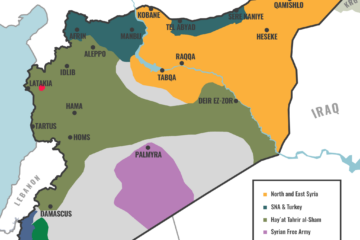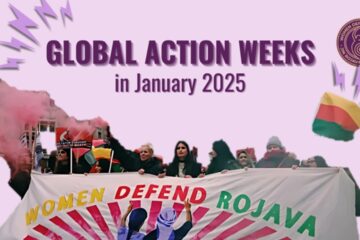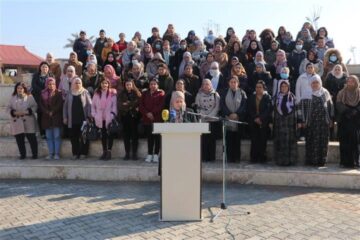This Wednesday, March 4, members and supporters of La Fronde and Red Help took part to a solidarity action at the Free University of Brussels (ULB). Here is the text of the leaflet distributed during the action
About CELOX?
Donate
Solidarity with the female fighters of Rojava!
With the official launch of the female fighting units YPJ (Women’s Protection Units) in April 2013 in Rojava, this predominantly Kurdish region of northern Syria, the struggle for the liberation of women entered a new phase.
The YPJ fighters (in Kurdish: Women’s Protection Units) played a major role in the armed struggle against the Islamic State (Daesh) but also in the resistance against the repeated attacks of the Turkish army against Rojava. Neither Erdogan’s patriarchal, Islamist and authoritarian Turkey, nor the Syrian regime can accept the multiethnic and egalitarian project of democratic confederalism in Rojava.
Because the women of Rojava do not only fight against external threats; they also transform the positions of women within their own society, traditionally chauvinistic and patriarchal.
Rojava and, more broadly, the Democratic Federation of Northern Syria, is a unique experience in the Middle East, where different peoples and faiths coexist and self-organize on the basis of direct democracy and gender equality. This model spreads, for example in the north of Iraq among the Yezidis, who have their own female fighters unit: the YJŞ (Women’s Units of Shengal).
Surrounded by dictatorships, threatened by multiple armed forces (including those of the Islamic State which perpetuate massacres attacks on the territory of Rojava and which offers auxiliaries to the Turkish army), Rojava cannot exist without active solidarity on our side.
Today’s demonstration at the ULB invites you to learn more about Rojava, to popularize and defend its cause. Among the possible aids, you can contribute to the campaign to send military medical supplies to fighters from Rojava. Celox hemostatic bandages stop severe haemorrhage and save lives on the front line, where evacuations and blood transfusions can often not be done on time.


